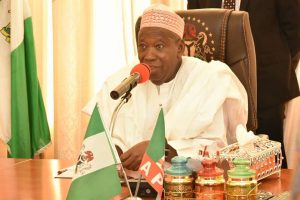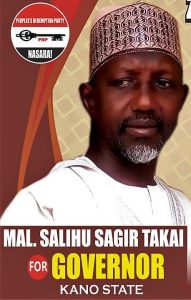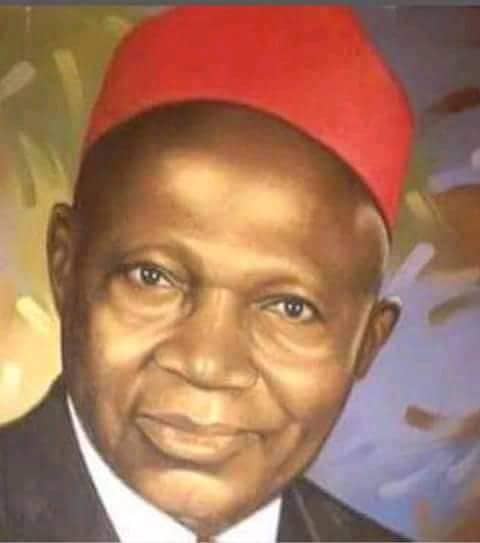There is nostalgia for the NEPU tradition and its progenitor, the People’s Redemption Party, (PRP) in Kano but is it sufficient to cause an electoral earthquake in Kano on February 16th and on March 2nd, 2019? This is the question stakeholders of Kano politics are pondering upon on the eve of the 2019 General Elections in which two presidential candidates – an incumbent and a challenger – are running neck to neck.
Kano politics has a rural-urban divide as a key character. The rural elements may be said to be the real voters, most of whom believe the PRP is their party. At the moment, the average village dweller is for President Buhari but, at the same time, there is PRP resurgent. No one can be a replica of the late Mallam Aminu Kan but there is a young man who has exhibited Mallam Aminu Kano qualities and whom the radars of power in Kano has picked up and might be heading for ascendancy. That is if he can crush incumbency power of Dr. Abdullahi Ganduje as well as the Atiku Abubakar challenge in current Kano politics.
The incumbency power in Kano today revolves around two points. One is the infrastructural exertions of Governor Abdullahi Ganduje. Infrastructures are visible and Nigerians have a way of rating people in power in terms of what they can see to the credit of such leaders rather than intangible things leaders should do. Ganduje is benefitting from that tradition of scoring. Closely related to that is his second advantage which is the paradox of corruption allegation. That is, there are those who think the corruption allegations against him was a blackmail and are sufficiently angry enough to have decided to vote for him. How far this category of voters can sway the verdict remains in speculation.
Of course, he too enjoys the benefits of the three factors that determine Kano politics almost timelessly: land, contracts and appointment. But the governor is in a pretty bad shape. He is certainly not popular with the masses. People think he is corrupt and they assess his wife to be the one calling the shots. His crisis might have been aggravated by the splits in the legacy parties, each of which appear to be crafting its strategy to acquire and consolidate power in 2019/2023. That is the All Nigerian People’s Party, (ANPP) and the Congress of Progressive Change, (CPC).

Gov Ganduje of Nigeria’s Northwest State of Kano
It is this, among other factors, which has brought the PRP into the centre of Kano politics. There have been two main splits in Kano recently. That is, the split in the People’s Democratic Party, (PDP) between Governor Ganduje and Senator Rabiu Musa Kwankwaso on the one hand and the movement of former governor, Ibrahim Shekarau from the PDP to the APC. Analysts say that Shekarau moved, not on grounds of ideological conviction but, fundamentally, because he and Kwankwaso cannot be under one shade. The implication is that Kwankwaso is out to ensure the defeat of the APC at all levels in Kano. He was a former governor and, somehow, he could do it or frustrate it or impair the degree of victory of the APC, both at the presidential and gubernatorial levels. In 2015, the PDP did not do well in Kano mainly because many PDP members voted against the party. That is not going to happen on that scale now in a power game featuring an Atiku Abubakar-Kwankwaso combination in a diffuse city such as Kano. The speculation is that, should Buhari win heavily in the presidential poll in Kano next Saturday, meaning that the PDP is not quite a strong contender, they would have no choice than pull a stunt by voting for the governorship candidate of the PRP.
Now, to the second split featuring Ibrahim Shekarau who has one leg in the APC and another one in the ANPP. Given his rather not too cordial relations with the president and given the perceived conscious attempt at positioning the ANPP in power, the question has been this: what would stop him and his group of ANPP mandarins in Kano – Senator Kabir Gaya, Barau Jibril and even Dr. Nasiru Gawuna, the incumbent Deputy-Governor from staging the polls for the PRP governorship candidate on March 2nd, 2019 irrespective of who wins in Kano next Saturday? In the case of Ibrahim Shekarau, the PRP governorship candidate is his own candidate in a way. But who then is this new Aminu Kano symbol?

PRP governorship candidate for Kano State
The name is Alhaji Salisu Sagir Takai. By age, he is not a hard core NEPU activist but he is generally seen as honest, not materialistic and has a record of returning unspent money to the treasury. Right now, his posters carry Mallam Aminu Kano portrait, stirring nostalgia that can inflame memories of the legend himself. It is not clear which school of politics groomed him as to practice returning huge unspent money to the treasury, for example, at a time others would have made billions from some of the positions he has occupied. He was Chairman of his Local Government Council – Takai, then Chairman of the rural water supply structure in the state. He is campaigning on giving local governments autonomy, meaning he is raising an issue he is knowledgeable about in that he knows what LGCs can do and what is stopping them from doing it.
This is the update in Kano but the PRP phenomenon might not be restricted to Kano. It is also rising in nearby Jigawa and far away Benue State where a Reverend Dr. Frederick Ikyan is the governorship candidate. He is most unlikely to beat the APC and the PDP candidate in February/March in Benue but it is something for his candidature to attain folk reckoning in a place such as Benue. What is he bringing to the table? His pastoral background and the NKST constituency appear to be his strength. The popularity level is said to be such that but for the fact that the NKST is territorially limited to Tivland, the candidate could pull an electoral surprise, more so that the NKST Church is a factor in politics of Tivland.
Although, the resurgence of the PRP in Jigawa is not on any scale comparable to what is happening in Kano, it is nevertheless there just as it is in Katsina and in Kaduna where the ‘godfather’ lives. In Bauchi, the People’s Redemption Party (P R P) is making waves to the point of giving the ruling APC a run for its money and power. A combination of dissents from the APC and the late Sa’adu Zunguru’ s loyalists gives PRP its strength in the state. The gubernatorial flag bearer of the party is Prof. Aliyu Fati. It is very weak in Katsina though, to the point that even Roni Local Government which is the border between Jigawa and Katsina states could not field candidates beyond a lady.
It all raises the question of what might be bringing back the PRP in the old North? According to Prof Raufu Mustapha, the late leading voice on the nature of the PRP, it was the last ditch effort of a more radical segment of the emergent elite who appealed directly to the people towards effecting social change in the context of severe existential conditions in the last decade or so of colonialism and inflexible emiral authority. In other words, it was a populist movement which, according to the late Prof Ahmadu Jalingo who served as Political Secretary to Mallam Aminu Kano unified all local resistance groups fighting the tyranny of local structures of power across the North. Some of such groups had nothing radical about them but were ideologically and organisatioally radicalized into resistance politics by the PRP. The question would be how much have changed from the situation in the last decade of colonialism and now as to say the conditions are no longer the same. Many are thus ready to say that the PRP is rising as the sanctuary for all those who have been so disappointed by recent experiences of leadership across Nigeria; for radical activists who are morally and ideologically constrained from finding accommodation in what exist today in the name of political parties; for those who are nostalgic and for rural people, especially around Kano-Kaduna axis who know what a PRP government could mean in terms of their welfare. Can Mallam Aminu Kano force an upset from his grave 36 years after his death?




























